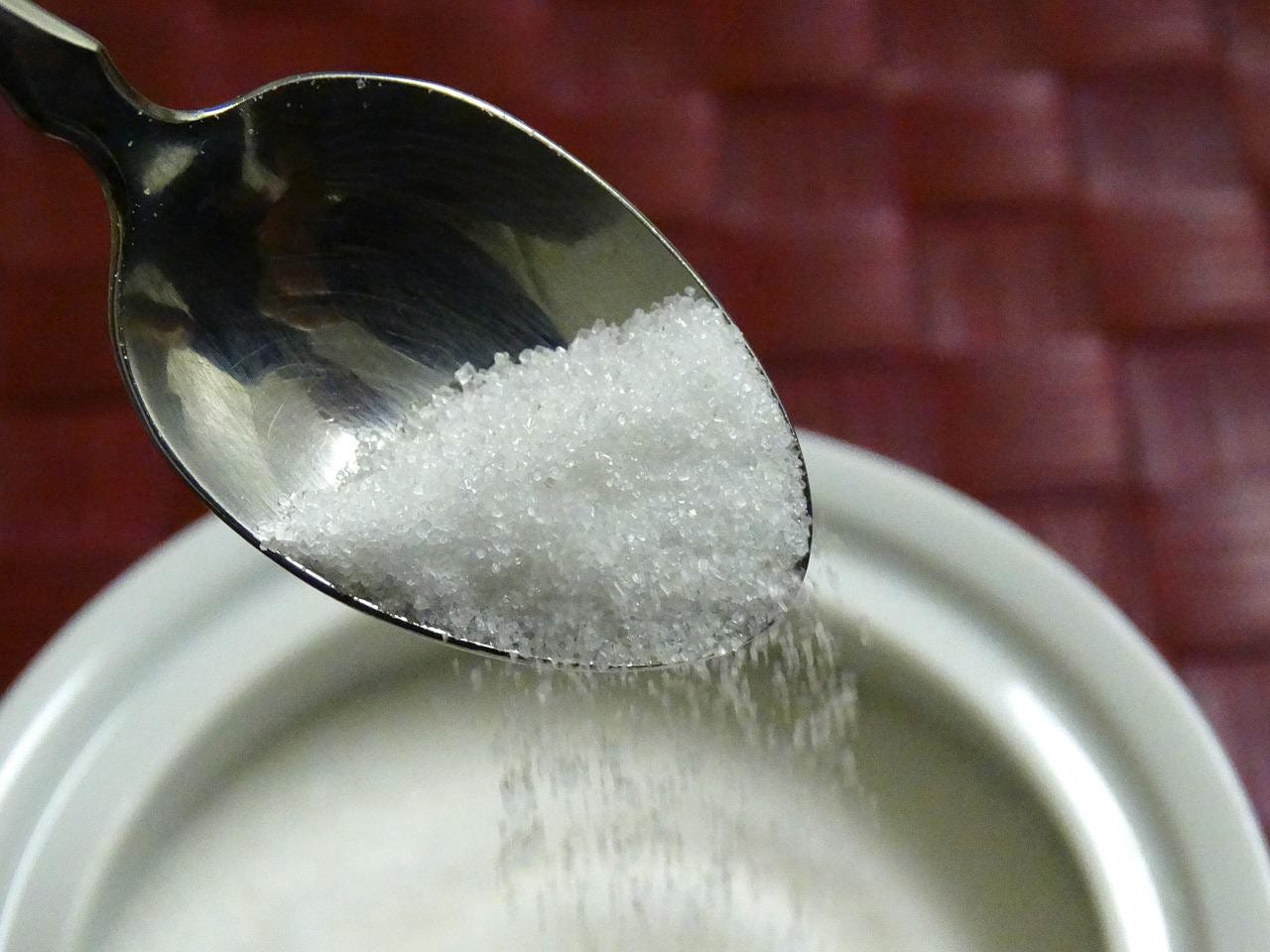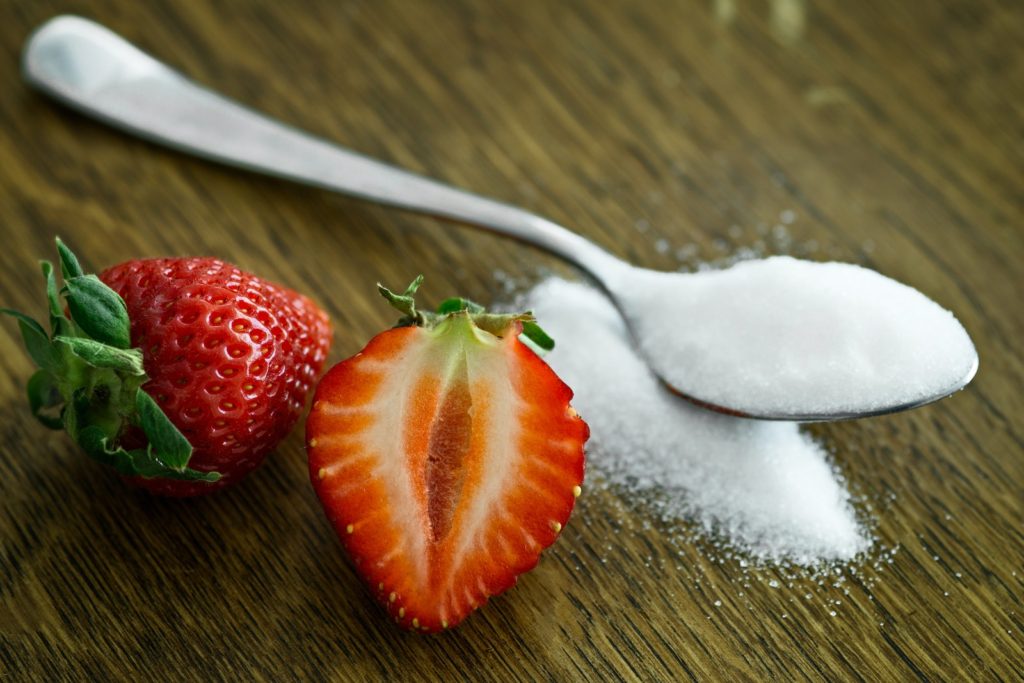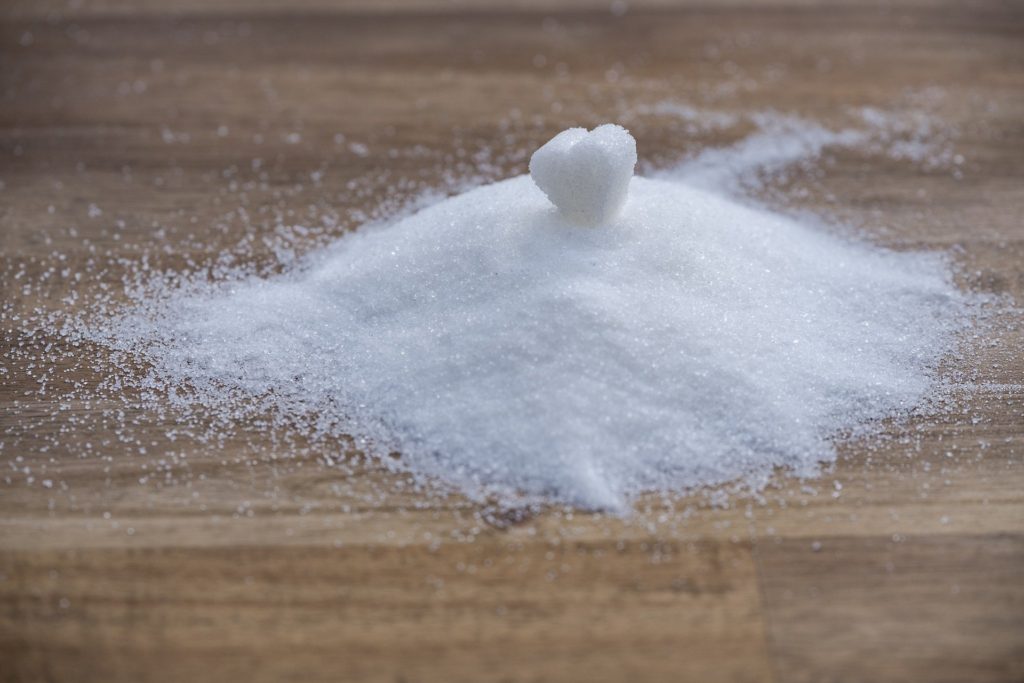A recent study found that artificial sweeteners alter the bacteria in the gut.
The findings sparked a lot of interest in artificial sweeteners, especially given that they’re commonly used as substitutes for sugar.
Everyone knows that excess sugar isn’t healthy.
It increases our risk of developing type 2 diabetes and other serious conditions.
But, you may be wondering if artificial sweeteners are bad for you too.
Here are some facts about artificial sweeteners to help you decide if they’re safe for your diet & if you should avoid them or not.
What is An Artificial Sweetener?
Artificial sweeteners are chemicals that provide a sweet taste without any calories. Sugar and artificial sweeteners have similar chemical structures, but the atoms are arranged differently. As a result, they don’t get metabolized the same way that sugar does.
This means that they don’t provide your body with any calories.
Instead, they are just metabolized by your digestive system and then excreted.
The most common artificial sweeteners are erythritol, aspartame, sucralose, saccharin, stevia, neotame, and acesulfame potassium.
They’re all approved by the FDA and safe to consume in moderation.
However, some people are sensitive or allergic to certain sweeteners, even natural ones like stevia & monk fruit.

How Are Sweeteners Different from Sugar?
Artificial sweeteners and sugar have similar structures, but they’re not metabolized the same way. Artificial sweeteners are not broken down by your digestive system and are not converted into energy like sugar is. Instead, they are metabolized by your liver and excreted.
Sugar, on the other hand, is broken down and metabolized by the cells in your body, providing them with energy.
Who Discovered Artificial Sweeteners?
Artificial sweeteners have been around since around the year 1900 when saccharin (which is still one of the most popular sweeteners today) was first introduced. Saccharin was discovered by two chemists, Constantin Fahlberg & Ira Remsen, who were trying to make a sugar substitute. They discovered that when you mix sodium with hydrochloric acid, it creates a sweet chemical.
While saccharin was making a lot of progress, cyclamate, another artificial sweetener, was developed and explored as a potential artificial sweetener.
However, cyclamate was banned in the 70s because research showed that it caused cancer in lab animals.
Unlike cyclamate, saccharin was never banned.

Are Artificial Sweeteners Bad for You?
Artificial sweeteners aren’t as bad for you as you might think. Some studies suggest that artificial sweeteners can help you to lose weight, reduce your risk of diabetes, and lower your blood pressure. But, if you make a habit of eating artificial sweeteners, you might run into health problems.
Artificial sweeteners are commonly used as sugar substitutes because they’re much sweeter than sugar and have zero calories.
As a result, you can use less of them to get the same amount of sweetness as with regular sugar.
This means you can eat a really small amount of them & not experience too many bad side effects.
But, since artificial sweeteners activate your brain’s reward system, after you eat them you’ll find other foods less palatable.
Personally, during the first two months of my healthy eating journey, I used artificial sweeteners as a crutch to enjoy the sweet foods I used to eat whilst still cutting out sugar from my diet.
However, I noticed that eating artificial sweeteners made me crave sweet foods more & enjoy other foods less.
That’s why I quit eating artificial sweeteners around 2 months later.
How Can You Find Out If Artificial Sweeteners Are Bad for You?
The best way to find out if something is bad for you is to do research and look at the facts. The same goes for artificial sweeteners.
While some studies suggest that they can be good for you, others claim that they’re bad for you.
There are lots of articles online that examine both sides of the argument.
You can also consult your doctor if you want a professional opinion on the matter.

Who Should Avoid Artificial Sweeteners?
If you’ve just begun eating healthily & want to use artificial sweeteners as a crutch to satisfy your sweet tooth, you should eat artificial sweeteners. But, if you’ve gotten used to eating healthily, you should eliminate artificial sweeteners from your diet since they make you crave sweet foods more.
Conclusion
Artificial sweeteners are not broken down by your digestive system and are not converted into energy like sugar is.
Instead, they are metabolized by your liver and excreted.
While some studies suggest that artificial sweeteners can be good for you, others say that they’re bad for you.
But, I recommend that once you become used to eating healthily, you should quit them since they can be addictive.
But, if you do use artificial sweeteners, I recommend you to read my article here where I compare the healthiest natural & artificial sweeteners on the market so you can choose the best one for your needs.
- Can You Still Lose Weight If You Aren’t in Ketosis? - February 8, 2023
- Can the Keto Diet Help With Depression? - February 8, 2023
- Why Does Processed Food Make You Fat? - January 2, 2023




